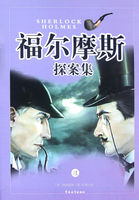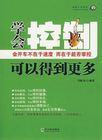By the time the State Supreme Court came to pass upon Cowperwood's plea for a reversal of the lower court and the granting of a new trial, the rumor of his connection with Aileen had spread far and wide. As has been seen, it had done and was still doing him much damage. It confirmed the impression, which the politicians had originally tried to create, that Cowperwood was the true criminal and Stener the victim. His semi-legitimate financial subtlety, backed indeed by his financial genius, but certainly on this account not worse than that being practiced in peace and quiet and with much applause in many other quarters--was now seen to be Machiavellian trickery of the most dangerous type. He had a wife and two children; and without knowing what his real thoughts had been the fruitfully imaginative public jumped to the conclusion that he had been on the verge of deserting them, divorcing Lillian, and marrying Aileen. This was criminal enough in itself, from the conservative point of view; but when taken in connection with his financial record, his trial, conviction, and general bankruptcy situation, the public was inclined to believe that he was all the politicians said he was. He ought to be convicted. The Supreme Court ought not to grant his prayer for a new trial. It is thus that our inmost thoughts and intentions burst at times via no known material agency into public thoughts. People know, when they cannot apparently possibly know why they know. There is such a thing as thought-transference and transcendentalism of ideas.
It reached, for one thing, the ears of the five judges of the State Supreme Court and of the Governor of the State.
During the four weeks Cowperwood had been free on a certificate of reasonable doubt both Harper Steger and Dennis Shannon appeared before the judges of the State Supreme Court, and argued pro and con as to the reasonableness of granting a new trial. Through his lawyer, Cowperwood made a learned appeal to the Supreme Court judges, showing how he had been unfairly indicted in the first place, how there was no real substantial evidence on which to base a charge of larceny or anything else. It took Steger two hours and ten minutes to make his argument, and District-Attorney Shannon longer to make his reply, during which the five judges on the bench, men of considerable legal experience but no great financial understanding, listened with rapt attention. Three of them, Judges Smithson, Rainey, and Beckwith, men most amenable to the political feeling of the time and the wishes of the bosses, were little interested in this story of Cowperwood's transaction, particularly since his relations with Butler's daughter and Butler's consequent opposition to him had come to them. They fancied that in a way they were considering the whole matter fairly and impartially; but the manner in which Cowperwood had treated Butler was never out of their minds. Two of them, Judges Marvin and Rafalsky, who were men of larger sympathies and understanding, but of no greater political freedom, did feel that Cowperwood had been badly used thus far, but they did not see what they could do about it. He had put himself in a most unsatisfactory position, politically and socially. They understood and took into consideration his great financial and social losses which Steger described accurately; and one of them, Judge Rafalsky, because of a similar event in his own life in so far as a girl was concerned, was inclined to argue strongly against the conviction of Cowperwood; but, owing to his political connections and obligations, he realized that it would not be wise politically to stand out against what was wanted.
Still, when he and Marvin learned that Judges Smithson, Rainey, and Beckwith were inclined to convict Cowperwood without much argument, they decided to hand down a dissenting opinion. The point involved was a very knotty one. Cowperwood might carry it to the Supreme Court of the United States on some fundamental principle of liberty of action. Anyhow, other judges in other courts in Pennsylvania and elsewhere would be inclined to examine the decision in this case, it was so important. The minority decided that it would not do them any harm to hand down a dissenting opinion. The politicians would not mind as long as Cowperwood was convicted--would like it better, in fact. It looked fairer. Besides, Marvin and Rafalsky did not care to be included, if they could help it, with Smithson, Rainey, and Beckwith in a sweeping condemnation of Cowperwood.
So all five judges fancied they were considering the whole matter rather fairly and impartially, as men will under such circumstances.
Smithson, speaking for himself and Judges Rainey and Beckwith on the eleventh of February, 1872, said:
"The defendant, Frank A. Cowperwood, asks that the finding of the jury in the lower court (the State of Pennsylvania vs. Frank A. Cowperwood) be reversed and a new trial granted. This court cannot see that any substantial injustice has been done the defendant. [Here followed a rather lengthy resume of the history of the case, in which it was pointed out that the custom and precedent of the treasurer's office, to say nothing of Cowperwood's easy method of doing business with the city treasury, could have nothing to do with his responsibility for failure to observe both the spirit and the letter of the law.]
The obtaining of goods under color of legal process [went on Judge Smithson, speaking for the majority] may amount to larceny. In the present case it was the province of the jury to ascertain the felonious intent. They have settled that against the defendant as a question of fact, and the court cannot say that there was not sufficient evidence to sustain the verdict. For what purpose did the defendant get the check?















